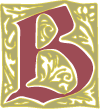Originally posted by spitfire
View Post
You are correct to an extent, it is either speculation or assumptions based off what we have to work with, never just one; just like the Slavic migration theory.
Edit:
Originally posted by spitfire
View Post
What we are also speculating is that the Macedonians always did speak a Slavic tongue and knew Greek, not Greek then transition into speaking another tongue.
Hence what I said earlier, the regions above us could have always spoken a Slavic tongue, therefore speculating that the Macedonians could have too isn't extreme or invalid.

Comment